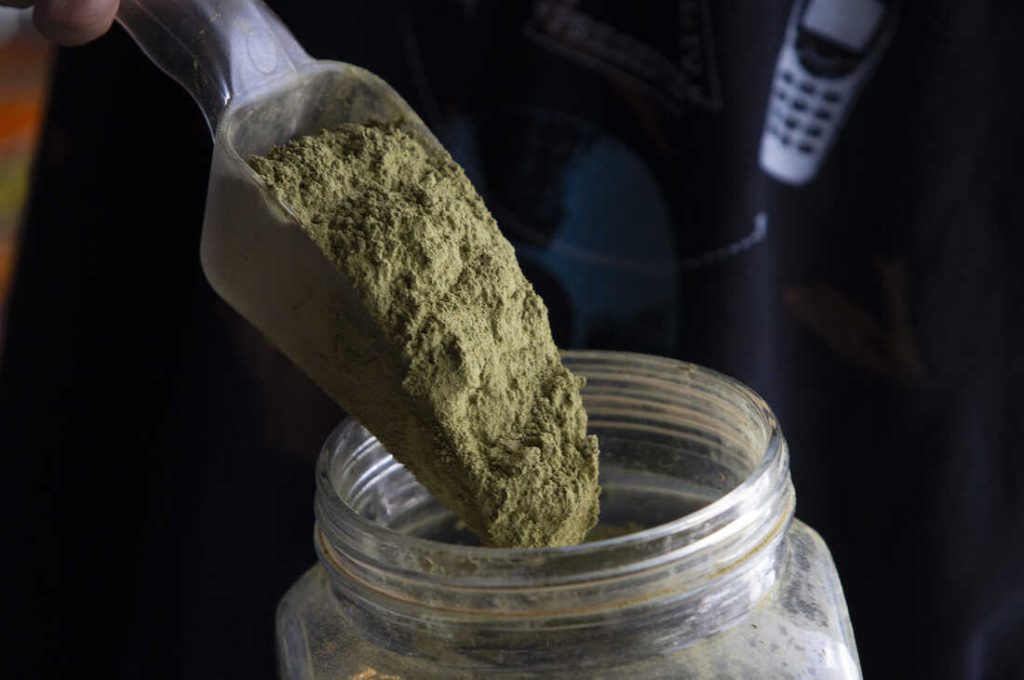
Kratom leaf powder advocates hail it as a safe herbal remedy for issues like chronic pain, low energy, emotional distress, and opioid addiction. However, government health authorities express concerns about potential abuse and side effects risks with unregulated kratom consumption. So what does the scientific evidence indicate is kratom powder’s effects on human health? Kratom refers to the leaves of Mitragyna speciosa, a tropical evergreen tree related to coffee native to Southeast Asia. Indigenous groups have used kratom leaves in traditional medicine for centuries to treat diarrhea, diabetes, pain, cough, intestinal parasites, and opioid addiction.
Kratom leaves are ground into powder or boiled into tea. Their rich cocktail of alkaloids appears capable of stimulating feelings of mild euphoria and alertness at low doses while dulling pain sensation and inducing tranquility at higher doses. The main active ingredients mitragynine and 7-hydroxymitragynine have been found to behave as partial mu-opioid receptor agonists in the brain. They also interact with delta and kappa opioid receptors, along with dopamine and serotonin pathways mediating pleasure and mood regulation much like yohimbine and psychedelics.
Research says about kratom powder
Most medical applications of kratom powder remain unproven scientifically. However early research and anecdotal user reports point to several evidence-supported effects:
- Stimulates alertness – Similar to caffeine, red maeng da kratom increase arousal, energy levels, and ability to concentrate for several hours useful for monotonous, tiring work.
- Enhances work capacity – By reducing fatigue and soreness, kratom enables extended periods of physical labor with less discomfort at moderate doses.
- Elevates mood – Binding serotonin and dopamine receptors appears to boost mood, induce mild euphoria, and lower stress/anxiety, especially in green and white vein strains. However high doses may provoke agitation instead.
- Relieves minor aches – Activating mu-opioid pathways substantially raises pain tolerance without completely numbing sensation like other narcotics. Useful for arthritis, injuries, and menstrual cramps.
- Aids opioid withdrawal – By easing the symptomatic burden, kratom helps those hooked on opioids like heroin or oxycodone wean off while avoiding relapse and fatal overdose risk. However medical supervision is still imperative.
- Anti-inflammatory – The mix of alkaloids may mimic NSAIDs and steroids by suppressing inflammatory pathways underlying certain repetitive strain conditions and autoimmune disorders.
Trying kratom powder responsibly
Should you elect to carefully experiment with kratom supplementation for energy lift or pain relief, here are brief guidelines:
- Check if kratom powder remains legal for purchase in your jurisdiction as regulations shift.
- Start a low dose at just 1 gram until you know how it affects you before gradually increasing.
- Keep detailed consumption logs noting timing, doses, benefits, and side effects experienced?
- Buy only from top trusted vendors who provide lab testing certificates for heavy metals and pathogens.
- Avoid taking kratom powder alongside other medications or drugs without guidance on interactions.
The pharmacology of humble kratom powder retains promising healing potential, its safety profile and optimal application protocols require further careful elucidation before various suspected therapeutic uses can be recommended generally.







